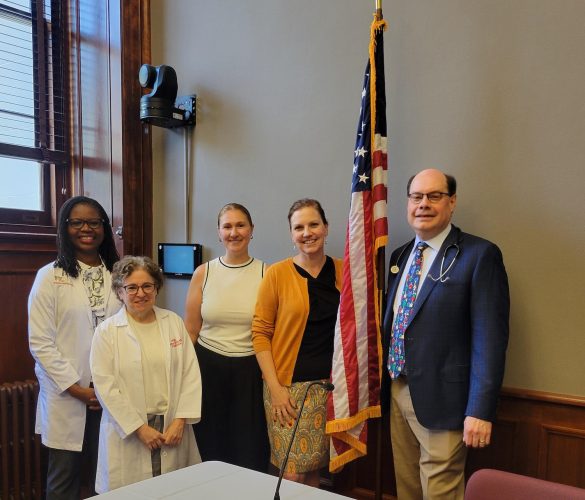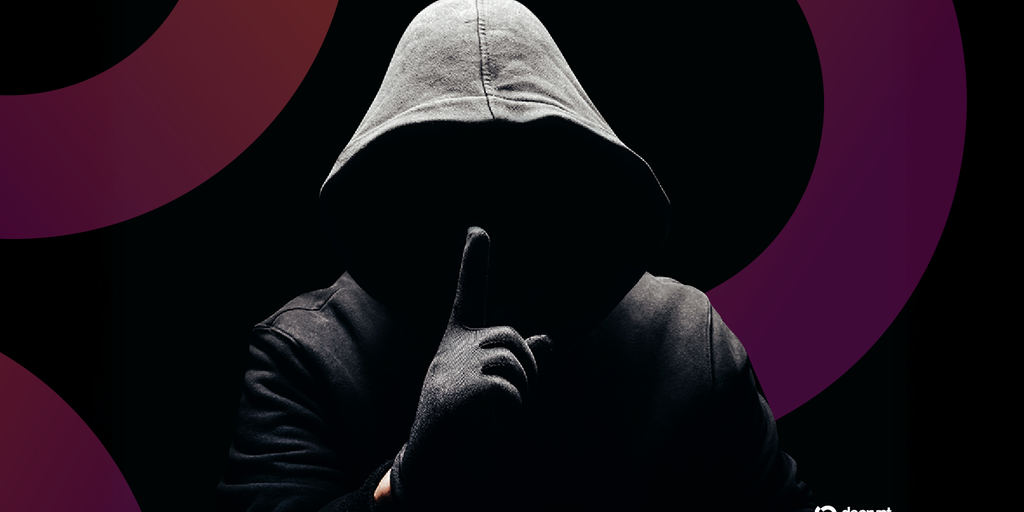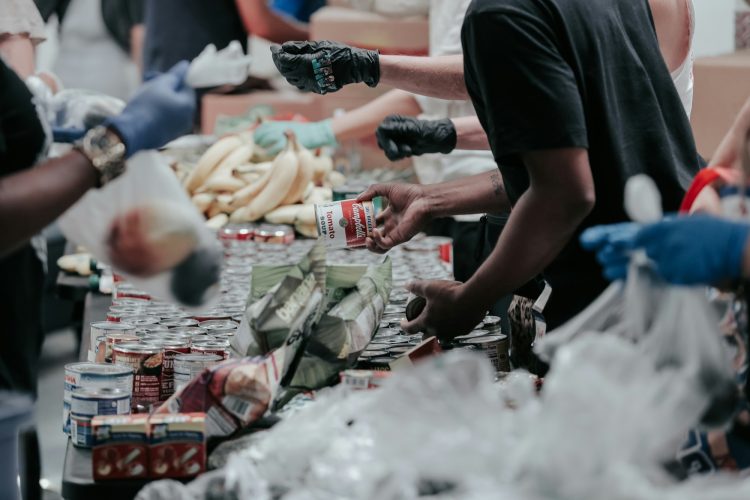TriplePundit • As Medicaid Cuts Loom, Here’s What’s at Stake for Families

The story of Medicaid and its role in the United States cannot be told without addressing its profound impact on the health and well-being of families. As the largest health insurer in the country, Medicaid provides coverage to over 77 million people, including two in every five children. Despite its foundational importance, Medicaid is often misunderstood and undervalued, and looming cuts threaten to unravel the safety net it provides. These cuts risk devastating ripple effects, not just on healthcare access, but on housing, hunger and the overall stability of families.
I spoke with Stephanie Ettinger de Cuba, executive director of the nonpartisan network of children’s health experts Children’s HealthWatch, about her decades of work on social determinants of health, the challenges posed by Medicaid cuts, and the power of storytelling and data collection in advocating for a human-centered safety net.
Devon Gray: You’ve spent decades working on social determinants of health for children and families. What first drew you to this work, and how has it shaped your perspective on Medicaid and other basic needs assistance?
Stephanie Ettinger de Cuba: Honestly, I sort of fell backward into this work. I always knew I was interested in health, nutrition, kids, languages and culture, but I never knew quite how to put that together.
When I was in the Peace Corps in Bolivia, I had the opportunity to work with a doctor running an inpatient ward for children with severe malnutrition. He was frustrated because the same families were returning, so he wanted to design an educational support program. A lot of the mothers weren’t literate, so it had to be very culturally appropriate and pictorial. We ended up creating a telenovela with a theater group, weaving in nutrition and hygiene messages. That was the moment I realized, “Oh, there’s a way to put all these threads together.”
That experience galvanized me to study public health. I ended up doing domestic policy work, getting really deep into Supplemental Nutrition Assistance Program (SNAP) outreach and policy, which launched me into this whole world. At Children’s HealthWatch, I’ve been able to bring these passions together to make a difference for young kids and their families.
What has kept me in this work is that all these things are interconnected, yet we address them in silos. Our job is to make those connections plain. This is what comes through with Medicaid. People talk about it as if it’s separate from everything else in people’s lives, but healthcare is so incredibly fundamental. How can you possibly think it’s not related to your ability to work, have stable housing or put food on the table? They’re all the same thing. It’s one budget in a family.
Medicaid cuts are looming, and the stakes are high. What do you see as the most immediate and long-term impacts of these and other cuts to basic needs assistance on children and families?
SEC: It is just an absolute incoming train wreck. It’s going to have this massive ripple effect. With this and the SNAP cuts, they’re doing it in a very sneaky way. They’ve gotten people who really know these programs, and they’re sort of unstitching it from underneath, pulling the foundations out.
They’re cutting very wonky things like provider taxes or state-directed payments to do that. The average person has no idea what those are, but those things are what keep rural hospitals and hospitals with large shares of Medicaid patients afloat. Medicaid pays less than the cost of care, so these supplemental payments are the only way hospitals and doctors can afford to continue treating these patients. It makes the advocacy a challenge because it’s these wonky, detailed things that are actually huge.
There’s all this talk about going after “able-bodied people,” but that’s a mental game of siloing. Those are people who have families. Even if you are so-called able-bodied, you’re not going to be for very long if you can’t get healthcare. We’ve created this cycle of throwing people off a cliff and asking why they didn’t catch themselves, which is why I’ve started using the term “work reporting requirements” [instead of the official term “work requirements“] because most of these folks are working. The issue is these really onerous reporting requirements that will shove people off the program. That’s where the “savings” are coming from.
And a lot of those people have kids. We know from research that if parents don’t have health insurance, their children — even when insured — are much less likely to get the care they need. It’s this farcical situation that is shooting ourselves in the foot as a nation. You have undermined the health of half the population, not just now but into the future.
There’s this widespread idea that Medicaid is just a safety net. How would you respond to people who underestimate its importance and the role it plays in preventing deeper crises, like housing and food insecurity?
SEC: One frame we’ve used in the past is that things like housing, healthcare and food are the roots of the tree. If we don’t have solid roots, the tree topples. These are foundational things everybody needs, not just “those people.” People in higher-income brackets don’t think about it because they aren’t forced to make the trade-offs.
A study I published earlier this year on immigrant mothers showed how they were negotiating health with all the other demands. The punchline is that these moms were sacrificing like crazy for their kids: stretching their own medicine, forgoing care for their own depression so their child’s asthma could be treated. How are we expecting people to work and function when we’re asking them to sacrifice their own health? It’s crazy.
That’s the other thing that bothers me, the narrative that somehow kids and adults are separate. If the adults in the household are not doing well, then inherently, the kids aren’t doing well. You can’t pat yourself on the back for not cutting kids’ healthcare, because you did.
Where do you see hope, and what should we focus on going forward?
SEC: One of the things that gives me hope is the passion this is awakening in a lot of people. Even in my own life, friends in completely different lines of work are asking what they can do. I hate the circumstances, but it’s great to see people come together and get mad in a productive way.
We also see the impacts of our advocacy. There were things in that bill [the “One Big Beautiful Bill Act”] that were really, really awful that were dialed back. For example, the work reporting requirements for families were going to start at age six. There was huge backlash, and while we didn’t get rid of them, they’re now for families with kids 14 and up. We were able to move things. It’s galvanizing to know this deep effort is worth it because we can make things change, even if they’re not perfect.
It would be even more depressing if all this was happening and people weren’t noticing or were apathetic. This is why data collection is so important — to document the impacts and make the link clear. You made that change, and that change hurt this person’s life in this negative way. That is a democracy-building project in many ways.
This interview was edited for clarity.



Post Comment